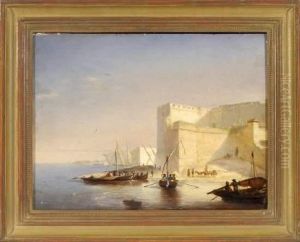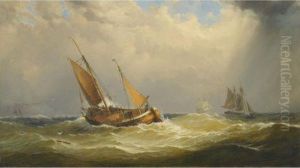Paul Claes Paintings
Paul Claes is a Belgian poet, novelist, and translator born on October 30, 1943, in Leuven, Belgium. Renowned for his erudition and versatility, Claes's contributions span multiple genres and languages, drawing from a deep well of classical, literary, and philosophical knowledge. His work is distinguished by its intertextuality, a feature that reflects his profound engagement with the Western literary tradition. Claes's literary output includes poetry, novels, essays, and translations, showcasing his mastery over language and his ability to traverse literary boundaries with ease. A hallmark of his work is the blending of form and content to explore complex themes such as identity, history, and the nature of literature itself.
Claes's academic background, with a focus on classical philology and comparative literature, has had a significant influence on his writing and translation work. He is particularly noted for his translations of classical texts into Dutch, including works by Catullus, Propertius, and Dante, among others. These translations are celebrated for their accuracy and the way they capture the spirit and nuances of the original texts. In addition to translating classical works, Claes has also translated modern literary figures, further demonstrating his wide-ranging interests and linguistic skills.
As a novelist, Claes has a penchant for embedding literary puzzles and references within his narratives, inviting readers to engage in a deeper exploration of his texts. His novels often interweave historical events with fictional elements, creating richly layered stories that challenge and entertain. In his poetry, Claes exhibits a keen awareness of form, employing a variety of styles and structures to probe philosophical and existential questions.
Throughout his career, Paul Claes has received numerous awards and accolades in recognition of his contributions to literature and translation. His work continues to be influential, not only in the Dutch-speaking world but also among readers and scholars of literature globally. Despite his achievements, Claes remains a somewhat enigmatic figure, preferring to let his work speak for itself. As of 2023, he continues to write and translate, contributing to the cultural and intellectual landscape with his profound insights and linguistic prowess.


